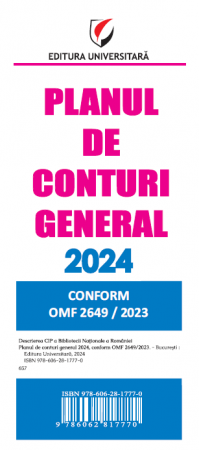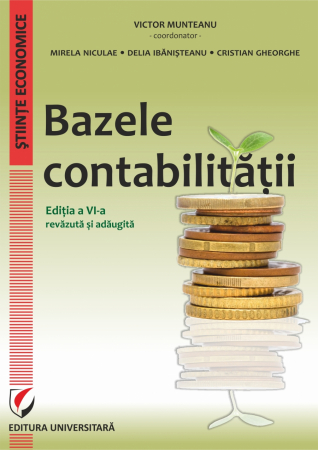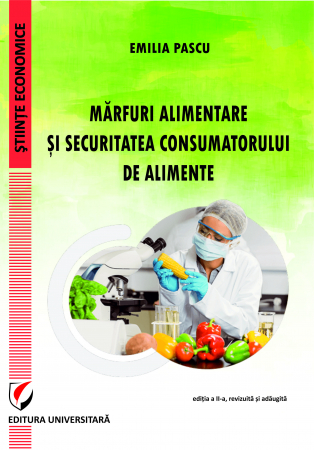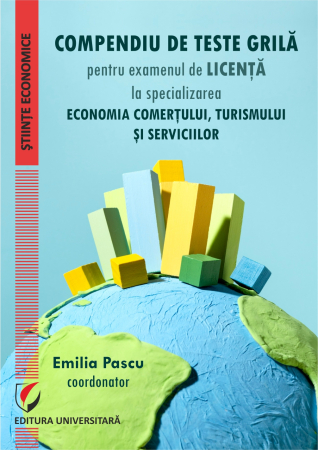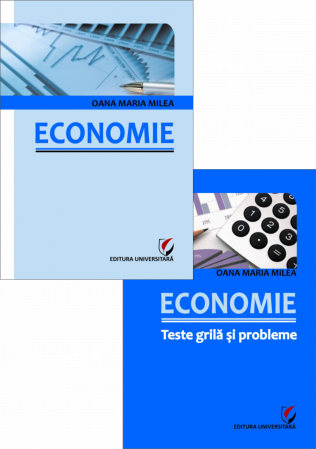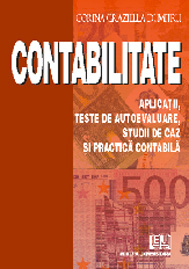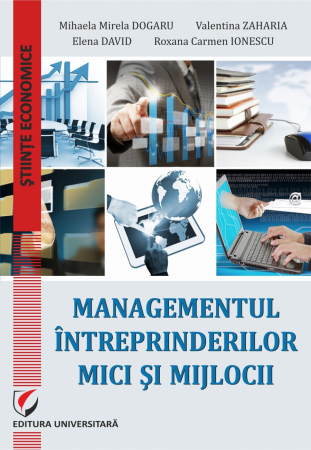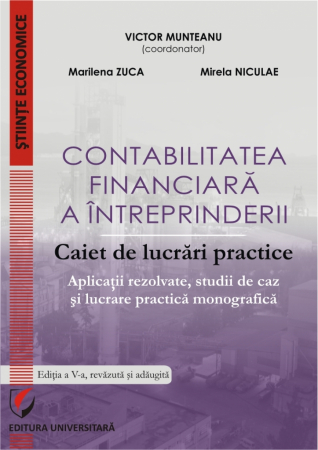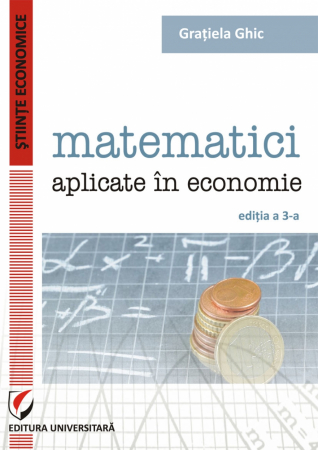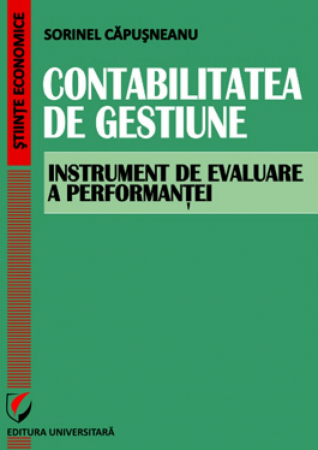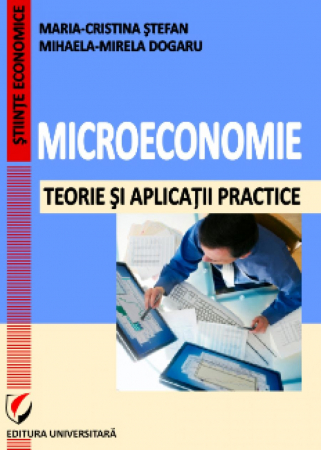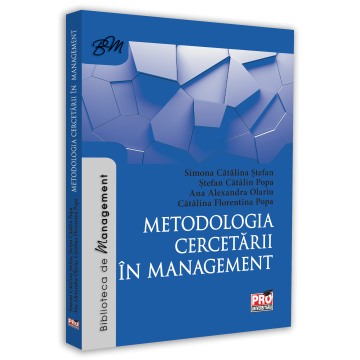Manuscript proposals: [email protected] / 0745 204 115 //// Tracking orders Individuals / Sales: 0745 200 357 / Orders Legal entities: 0721 722 783
ISBN: 978-606-28-0497-8
DOI: 10.5682/9786062804978
Publisher year: 2016
Pages: 306
Publisher: Editura Universitară
Author: Vadim Dumitrascu
Product Code:
9786062804978
Do you need help?
0745 200 357
- Description
- Download (1)
- Authors
- Content
- More details
- Reviews (0)
To what extent can we talk about "Euromanagement", respectively about a "common model" of management practiced by companies operating in the European Union? This is not a risky endeavor only insofar as European companies, regardless of their country of origin, are animated by a set of values and concerns of the same kind. Also, the reflections on this topic are encouraged by the fact that, at present, we are witnessing a process of relentless dissolution, but not at all linear and uniform, of the national enterprise and management models. The engine of this process is the rise of multinational companies as leading players in the new European and world economic and political context. What management model characterizes, for example, a company registered in France, with shareholders from several countries, including the Middle East, with an equally multiethnic management team, which operates in Romania using the Romanian workforce, for clients from a few dozen countries throughout the European Union, but also many from outside it? Is it a French, British or maybe German management, or maybe of Arab cultural inspiration, or, why not, a management with Romanian "accents"? The answer to this question is very difficult to formulate. Frankly speaking, we consider that the national "color" does not really matter, if one can be generally identified, the management of companies in this category. What really matters is the ability of European companies to face unprecedented challenges. Euromanagement will gain strength, distinction and personality depending on the solutions it will find in dealing with these problems. This paper is conceived and written based on this presumption.
Here we must make some clarifications related to the fundamental principles that we had in mind in our research intention. These principles concern the nature of economic organizations and the constraints on their way of structuring and functioning performance. The economic objectives of the company must not hide its essence: the company represents first of all an organization. Any company is an organization with economic purpose in the sense that it must provide goods and services, on the one hand, having to do so in a cost-effective manner, ie having good economic health, which will allow it to fulfill social functions, on the other hand.
Talking about organizations means talking about relationships that allow a group of people to work together to achieve certain common goals. So, we are talking about people in the first place.
Product compliance information
Here we must make some clarifications related to the fundamental principles that we had in mind in our research intention. These principles concern the nature of economic organizations and the constraints on their way of structuring and functioning performance. The economic objectives of the company must not hide its essence: the company represents first of all an organization. Any company is an organization with economic purpose in the sense that it must provide goods and services, on the one hand, having to do so in a cost-effective manner, ie having good economic health, which will allow it to fulfill social functions, on the other hand.
Talking about organizations means talking about relationships that allow a group of people to work together to achieve certain common goals. So, we are talking about people in the first place.
-
Comparative Management. Postmodern Trends and Challenges
Download
VADIM DUMITRASCU
INTRODUCTION - Euromanagement challenged by postmodernity / 7
CHAPTER 1
The conceptual area of European comparative management / 10
1.1 Euromanagement and the nature of modern organizations / 10
1.2 The legacy that Euromanagement must get rid of / 23
1.3 Euromanagement - a science of exploring socio-human and economic complexity? / 30
CHAPTER 2
A new managerial philosophy for a new era / 43
2.1 The modern managerial ethos / 43
2.2 The crisis of the managerial paradigms of modernity / 55
2.3 Systematics as a conceptual matrix of management reinvention / 67
2.4 The managerial profile of postmodernity / 85
CHAPTER 3
Complexity and knowledge as forces for structuring management / 103
3.1 Reading grids of organizational complexity / 103
3.2 The use of chaos as a fundamental source of improving organizational performance / 130
3.3 Knowledge as a strategic resource / 158
CHAPTER 4
Organizational culture as a differentiating factor and source of competitive advantages / 179
4.1 Cultural dilemmas in business organizations / 179
4.2 Value-oriented communication / 197
4.3 Authentic leadership as a critical factor for the survival and development of the organization / 213
4.4 Nothing without ethics and social responsibility in business / 226
CHAPTER 5
Strategic solutions for business organizations / 253
5.1 The new orientation of business strategies / 253
5.2 The rise of networks as flexible structures for business organization / 268
5.3 The lesson of modernity - the permanence of organizational crises / 280
BIBLIOGRAPHY / 301
CHAPTER 1
The conceptual area of European comparative management / 10
1.1 Euromanagement and the nature of modern organizations / 10
1.2 The legacy that Euromanagement must get rid of / 23
1.3 Euromanagement - a science of exploring socio-human and economic complexity? / 30
CHAPTER 2
A new managerial philosophy for a new era / 43
2.1 The modern managerial ethos / 43
2.2 The crisis of the managerial paradigms of modernity / 55
2.3 Systematics as a conceptual matrix of management reinvention / 67
2.4 The managerial profile of postmodernity / 85
CHAPTER 3
Complexity and knowledge as forces for structuring management / 103
3.1 Reading grids of organizational complexity / 103
3.2 The use of chaos as a fundamental source of improving organizational performance / 130
3.3 Knowledge as a strategic resource / 158
CHAPTER 4
Organizational culture as a differentiating factor and source of competitive advantages / 179
4.1 Cultural dilemmas in business organizations / 179
4.2 Value-oriented communication / 197
4.3 Authentic leadership as a critical factor for the survival and development of the organization / 213
4.4 Nothing without ethics and social responsibility in business / 226
CHAPTER 5
Strategic solutions for business organizations / 253
5.1 The new orientation of business strategies / 253
5.2 The rise of networks as flexible structures for business organization / 268
5.3 The lesson of modernity - the permanence of organizational crises / 280
BIBLIOGRAPHY / 301
To what extent can we talk about "Euromanagement", respectively about a "common model" of management practiced by companies operating in the European Union? This is not a risky endeavor only insofar as European companies, regardless of their country of origin, are animated by a set of values and concerns of the same kind. Also, the reflections on this topic are encouraged by the fact that, at present, we are witnessing a process of relentless dissolution, but not at all linear and uniform, of the national enterprise and management models. The engine of this process is the rise of multinational companies as leading players in the new European and world economic and political context. What management model characterizes, for example, a company registered in France, with shareholders from several countries, including the Middle East, with an equally multiethnic management team, which operates in Romania using the Romanian workforce, for clients from a few dozen countries throughout the European Union, but also many from outside it? Is it a French, British or maybe German management, or maybe of Arab cultural inspiration, or, why not, a management with Romanian "accents"? The answer to this question is very difficult to formulate. Frankly speaking, we consider that the national "color" does not really matter, if one can be generally identified, the management of companies in this category. What really matters is the ability of European companies to face unprecedented challenges. Euromanagement will gain strength, distinction and personality depending on the solutions it will find in dealing with these problems. This paper is conceived and written based on this presumption.
Here we must make some clarifications related to the fundamental principles that we had in mind in our research intention. These principles concern the nature of economic organizations and the constraints on their way of structuring and functioning performance. The economic objectives of the company must not hide its essence: the company represents first of all an organization. Any company is an organization with economic purpose in the sense that it must provide goods and services, on the one hand, having to do so in a cost-effective manner, ie having good economic health, which will allow it to fulfill social functions, on the other hand.
Talking about organizations means talking about relationships that allow a group of people to work together to achieve certain common goals. So, we are talking about people in the first place.
We also talk about the ends, which must be freely assumed and about the responsibility to pursue these goals. We also talk about the need to act rationally through the best possible selection of the means to achieve the set objectives, admitting that not every goal can justify any type of means. Finally, it is about a certain margin of freedom in choosing the objectives and means. In all these aspects, ethics has a say:
1) The company is a set of people who interact to make goods and services and offer them to other people. For this reason, human dignity and human rights must always be fundamental variables to be taken into account whenever we think of organizations. The concept of dignity is extremely important in this context. There is a famous formulation of Kant that defines it unequivocally: “In the kingdom of purposes everything has a price and a dignity. Something that has a price can be replaced by something else equivalent; instead, something that is above any price and therefore does not admit any equivalent, that has dignity. " Dignity is the basis of all human rights as recognized by the 1948 Universal Declaration.
2) Representing a set of people who form something more than a table, the organization is a new autonomous "subject", although in a particular sense.
3) This subject has a certain freedom in setting their own specific objectives. "Market determinism" is a fake: certain people, in the same context of action, formulate different policies (define sets of goals and means), which have different consequences for the people involved.
4) Just as there is a certain freedom of choice in setting goals, the means to achieve them are not strictly predetermined. That is why the same objectives can be achieved by different means, at the level of companies observing a wide variety of strategies implemented.
5) The arguments presented also explain why there can be no universally valid solutions or management models that offer unique ways to set goals, while prescribing the ways to follow to achieve them. I don't know neither the law nor the market can impose on a company a single course of action, even if all these forces explicitly and visibly condition its functioning. By analogy with the human being, the company is obliged to assume the concrete conditions of existence, making free decisions.
6) Therefore, the company as such, separate from the individuals that form it as an organization, must assume responsibility for its own acts as well as the effects that these actions have on different stakeholder groups.
We are of the opinion that the future of Euromanagement will be shaped according to the original way of solving the following conceptual and practical aspects:
1) Development of a managerial philosophy in accordance with the needs of the current business environment.
2) Efficient management of complexity and knowledge as decisive factors of competitiveness.
3) Transforming the organizational culture into the main source of strategic differentiation.
4) Exploring strategy models that give organizations dynamism and flexibility.
The book addresses these lines of force which, in our opinion, will mark the future of European companies, namely their ability to maintain and strengthen their economic vigor in the increasingly fierce competition in globalized markets.
The Author
Here we must make some clarifications related to the fundamental principles that we had in mind in our research intention. These principles concern the nature of economic organizations and the constraints on their way of structuring and functioning performance. The economic objectives of the company must not hide its essence: the company represents first of all an organization. Any company is an organization with economic purpose in the sense that it must provide goods and services, on the one hand, having to do so in a cost-effective manner, ie having good economic health, which will allow it to fulfill social functions, on the other hand.
Talking about organizations means talking about relationships that allow a group of people to work together to achieve certain common goals. So, we are talking about people in the first place.
We also talk about the ends, which must be freely assumed and about the responsibility to pursue these goals. We also talk about the need to act rationally through the best possible selection of the means to achieve the set objectives, admitting that not every goal can justify any type of means. Finally, it is about a certain margin of freedom in choosing the objectives and means. In all these aspects, ethics has a say:
1) The company is a set of people who interact to make goods and services and offer them to other people. For this reason, human dignity and human rights must always be fundamental variables to be taken into account whenever we think of organizations. The concept of dignity is extremely important in this context. There is a famous formulation of Kant that defines it unequivocally: “In the kingdom of purposes everything has a price and a dignity. Something that has a price can be replaced by something else equivalent; instead, something that is above any price and therefore does not admit any equivalent, that has dignity. " Dignity is the basis of all human rights as recognized by the 1948 Universal Declaration.
2) Representing a set of people who form something more than a table, the organization is a new autonomous "subject", although in a particular sense.
3) This subject has a certain freedom in setting their own specific objectives. "Market determinism" is a fake: certain people, in the same context of action, formulate different policies (define sets of goals and means), which have different consequences for the people involved.
4) Just as there is a certain freedom of choice in setting goals, the means to achieve them are not strictly predetermined. That is why the same objectives can be achieved by different means, at the level of companies observing a wide variety of strategies implemented.
5) The arguments presented also explain why there can be no universally valid solutions or management models that offer unique ways to set goals, while prescribing the ways to follow to achieve them. I don't know neither the law nor the market can impose on a company a single course of action, even if all these forces explicitly and visibly condition its functioning. By analogy with the human being, the company is obliged to assume the concrete conditions of existence, making free decisions.
6) Therefore, the company as such, separate from the individuals that form it as an organization, must assume responsibility for its own acts as well as the effects that these actions have on different stakeholder groups.
We are of the opinion that the future of Euromanagement will be shaped according to the original way of solving the following conceptual and practical aspects:
1) Development of a managerial philosophy in accordance with the needs of the current business environment.
2) Efficient management of complexity and knowledge as decisive factors of competitiveness.
3) Transforming the organizational culture into the main source of strategic differentiation.
4) Exploring strategy models that give organizations dynamism and flexibility.
The book addresses these lines of force which, in our opinion, will mark the future of European companies, namely their ability to maintain and strengthen their economic vigor in the increasingly fierce competition in globalized markets.
The Author
If you want to express your opinion about this product you can add a review.
write a review

6359.png)
![Comparative Management. Postmodern Trends and Challenges - Vadim Dumitrascu [1] Comparative Management. Postmodern Trends and Challenges - Vadim Dumitrascu [1]](https://gomagcdn.ro/domains/editurauniversitara.ro/files/product/large/management-comparat-tendinte-si-provocari-postmoderne-545-794644.jpg)
